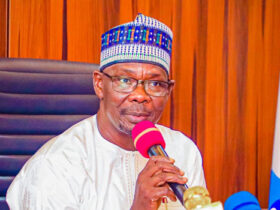The Nigerian government has sharply refuted claims by African Development Bank (AfDB) President Akinwumi Adesina that Nigerians are economically worse off today than in 1960, calling his GDP per capita figures inaccurate and his conclusions flawed.
In a detailed statement shared on X on Monday, Presidential Spokesman Bayo Onanuga debunked Adesina’s assertion, reported by Nairametrics, that Nigeria’s GDP per capita was $1,847 in 1960 and has fallen to $824 today.
Onanuga cited data showing Nigeria’s GDP in 1960 was $4.2 billion, with a per capita income of just $93 for a population of 44.9 million. He noted that GDP per capita only peaked at $3,200 in 2014 after rebasing, questioning the source of Adesina’s figures.
Onanuga emphasized that GDP per capita is an inadequate measure of living standards, as it ignores wealth distribution, the informal economy, and access to services.
He argued that Nigeria has made significant strides since 1960, with expanded road networks, more schools and hospitals, and widespread mobile phone access—over 200 million Nigerians now use digital services compared to 18,724 phone lines in 1960.
The presidency highlighted the telecommunications sector as proof of GDP’s limitations. In the early 2000s, Vodacom’s consultants, relying on GDP data, deemed Nigeria too poor for GSM services, yet MTN’s success, with N1 trillion in revenue and 84 million users in Q1 2025, proved otherwise. “Does this reflect a country worse off than in 1960?” Onanuga asked.
Onanuga also noted that Nigeria’s informal economy, potentially larger than the formal sector, is often underrepresented in GDP figures. With the National Bureau of Statistics set to recalibrate GDP, he claimed Nigeria’s economy is at least 50 to 100 times larger than at independence.
Accusing Adesina of making politically motivated remarks without due diligence, Onanuga urged a more comprehensive view of Nigeria’s progress. The rebuttal has ignited discussions on Nigeria’s economic trajectory, with some defending Adesina’s critique and others echoing the government’s optimism.










Got a Questions?
Find us on Socials or Contact us and we’ll get back to you as soon as possible.